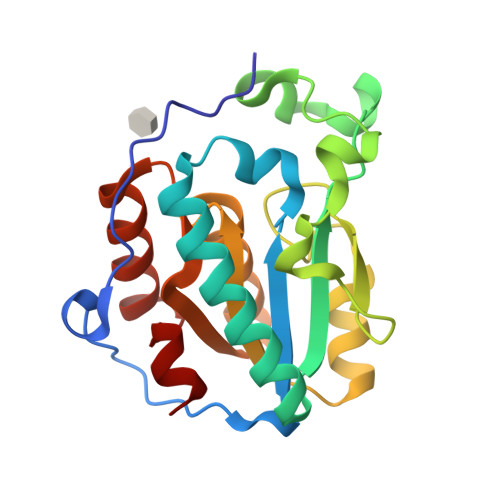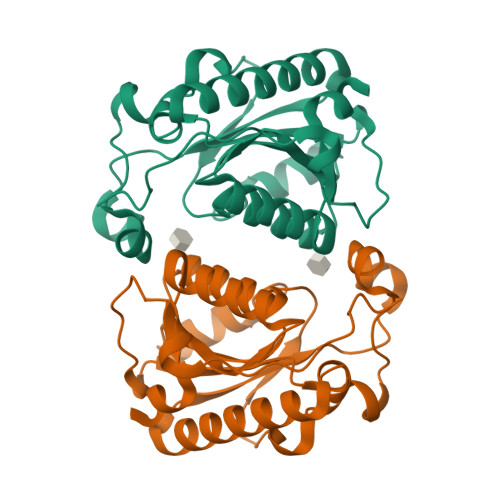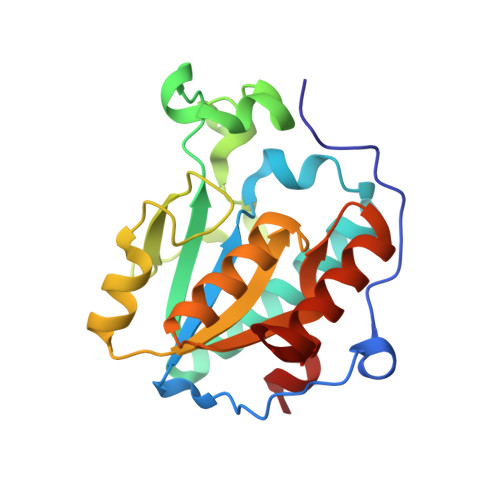Structure and mechanism of Pseudomonas aeruginosa PhzD, an isochorismatase from the phenazine biosynthetic pathway
Parsons, J.F., Calabrese, K., Eisenstein, E., Ladner, J.E.(2003) Biochemistry 42: 5684-5693
- PubMed: 12741825
- DOI: https://doi.org/10.1021/bi027385d
- Primary Citation of Related Structures:
1NF8, 1NF9 - PubMed Abstract:
PhzD from Pseudomonas aeruginosa is an isochorismatase involved in phenazine biosynthesis. Phenazines are antimicrobial compounds that provide Pseudomonas with a competitive advantage in certain environments and may be partly responsible for the persistence of Pseudomonas infections. In vivo, PhzD catalyzes the hydrolysis of the vinyl ether functional group of 2-amino-2-deoxyisochorismate, yielding pyruvate and trans-2,3-dihydro-3-hydroxyanthranilic acid, which is then utilized in the phenazine biosynthetic pathway. PhzD also catalyzes hydrolysis of the related vinyl ethers isochorismate, chorismate, and 4-amino-4-deoxychorismate. Here we report the 1.5 A crystal structure of native PhzD, and the 1.6 A structure of the inactive D38A variant in complex with isochorismate. The structures reveal that isochorismate binds to the PhzD active site in a trans-diaxial conformation, and superposition of the structures indicates that the methylene pyruvyl carbon of isochorismate is adjacent to the side chain carboxylate of aspartate 38. The proximity of aspartate 38 to isochorismate and the complete loss of activity resulting from the conversion of aspartate 38 to alanine suggest a mechanism in which the carboxylate acts as a general acid to protonate the substrate, yielding a carbocation/oxocarbonium ion that is then rapidly hydrated to form a hemiketal intermediate, which then decomposes spontaneously to products. The structure of PhzD is remarkably similar to other structures from a subfamily of alpha/beta-hydrolase enzymes that includes pyrazinamidase and N-carbamoylsarcosine amidohydrolase. However, PhzD catalyzes unrelated chemistry and lacks a nucleophilic cysteine found in its close structural relatives. The vinyl ether hydrolysis catalyzed by PhzD represents yet another example of the catalytic diversity seen in the alpha/beta-hydrolase family, whose members are also known to hydrolyze amides, phosphates, phosphonates, epoxides, and C-X bonds.
Organizational Affiliation:
Center for Advanced Research in Biotechnology, University of Maryland Biotechnology Institute, National Institute of Standards and Technology, 9600 Gudelsky Drive, Rockville, Maryland 20850, USA.


















